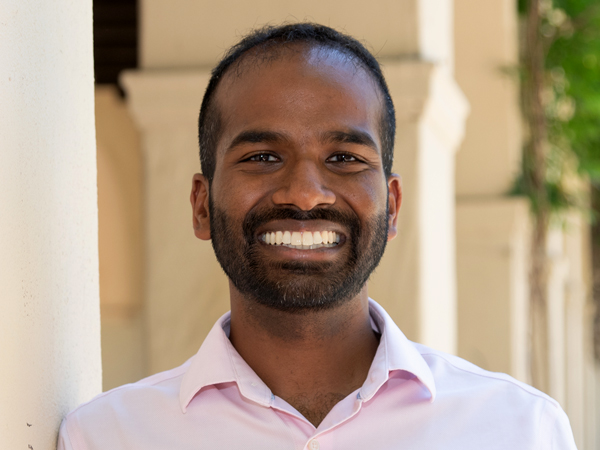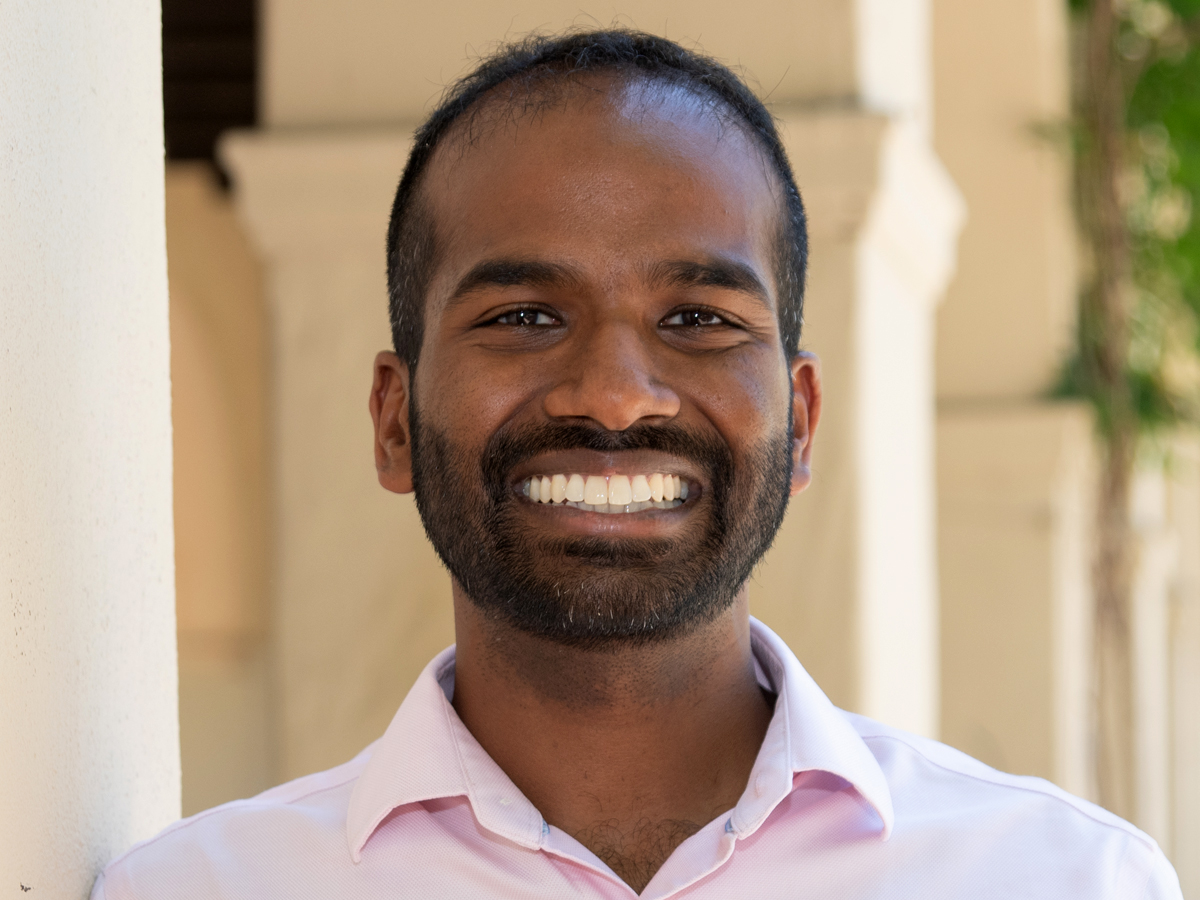The Infosys Prize 2025 in Physical Sciences is awarded to Prof. Karthish Manthiram, for pioneering sustainable electrochemical routes to essential chemicals. His breakthroughs in lithium-mediated ammonia synthesis and oxygen-atom transfer catalysis have transformed our understanding of electrified chemical manufacturing, demonstrating how renewable electricity can drive selective, efficient synthesis of chemicals that are fundamental to agriculture and industry.
Infographic:
All you need is a little sun
Scope and Impact of Work
Prof. Karthish Manthiram’s research spans the frontiers of electrochemistry, catalysis, and sustainability. His central theme is the electrification of chemical synthesis: developing methods to convert N₂, CO₂, and H₂O into essential products using renewable electricity, rather than fossil fuels.
Prof. Manthiram’s most notable contribution is the creative coupling of the hydrogen oxidation reaction to lithium-mediated nitrogen reduction. By introducing novel gas-diffusion and metal-mesh electrodes, his group achieved ammonia synthesis rates under ambient conditions that were two orders of magnitude higher than prior art. This set a world record and provides the seed of an alternative to the Haber–Bosch process, which is among the most carbon-intensive industrial operations. His recent sodium–titanium tandem strategy further lowers cost and expands the scope of electrochemical nitrogen fixation.
Equally transformative is his vision for electrified oxygen-atom transfer. In Science (2024), Manthiram reported Pd–Pt oxide catalysts that directly epoxidize propylene using water as the oxygen source, achieving Faradaic efficiencies near 66%. This eliminates hazardous oxidants like chlorine and peroxides, showing how water-oxidation intermediates can serve as clean, versatile oxidants for organic synthesis. This work leads the field on selective oxidation, with significant implications for decarbonizing hydrocarbon upgrading.
Karthish Manthiram’s other key innovations include electrochemical hydroformylation catalysts that operate faster than thermal analogues, CO₂ carboxylations of unactivated bonds, and lactonizations relevant to polymer synthesis. Each represents not just a new reaction, but a strategic leap toward electrified chemistry.
Manthiram’s fearless pursuit of unconventional ideas, backed by deep mechanistic insight, is already shaping multiple areas of catalysis. His work exemplifies the Infosys Prize ideal: bold, original science with transformative potential for society.
Bio
Karthish Manthiram is Professor of Chemical Engineering and Chemistry at Caltech, where he is also the William H. Hurt Scholar. A graduate of Stanford (B.S. 2010) and UC Berkeley (Ph.D. 2015, with Paul Alivisatos), he trained as a postdoctoral fellow with Nobel Laureate Robert Grubbs before joining MIT as faculty in 2017. He moved to a full professorship at Caltech in 2021.
Prof. Manthiram’s honors include the Sloan Research Fellowship, DOE Early Career Award, NSF CAREER Award, Camille Dreyfus Teacher-Scholar Award, the ISE Elsevier Prize for Applied Electrochemistry, and recognition in Forbes “30 Under 30.” He has delivered over 150 invited talks, mentored a new generation of leaders, and published over 50 high-impact papers and patents.
The arc of Karthish Manthiram’s work embodies the convergence of fundamental chemistry, engineering insight, and societal urgency, forging electrified pathways to a sustainable chemical future.
Timeline
Jury Citation
Prof. Karthish Manthiram has redefined how electricity can be used to synthesize critical chemicals from abundant small molecules such as N₂, CO₂, and H₂O. In a landmark paper in Nature Catalysis, he demonstrated record-setting rates of ambient ammonia synthesis, overcoming diffusion bottlenecks by inventing metal-mesh electrodes for nitrogen reduction.
Prof. Manthiram then introduced palladium–platinum oxide alloy catalysts, in a paper in Science, to selectively epoxidize propylene from water, enabling efficient, chlorine-free production of propylene oxide.
Beyond these signature advances, his lab has electrified hydroformylation and devised sodium–titanium tandem systems that lower costs for nitrogen fixation. His creative use of the hydrogen oxidation reaction to power organic synthesis bridges electrochemistry, catalysis, and organic synthesis and is a bold new paradigm to replace fossil-based feedstocks with renewable electricity. The Infosys Prize recognizes his fearless creativity and transformative contributions to sustainable chemical manufacturing.

Karthish Manthiram
On behalf of the jury, I warmly congratulate Prof. Karthish Manthiram on receiving the Infosys Prize 2025 in Physical Sciences. His fearless creativity in electrifying the synthesis of vital chemicals—spanning ammonia, propylene oxide, and beyond—exemplifies transformative science at the interface of chemistry, energy, and sustainability. He is a brilliant role model for the next generation of physical scientists.



